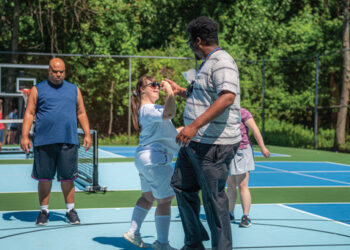Even though most people consider local community recreation services to be valuable assets, there is no denying that low engagement has led to diminishing participation. This, combined with increasingly lower funding over the years, poses certain challenges that threaten the well-being of nonprofit recreation.
The time to address these challenges is now. With technological advancements, the concept of smart cities is too imminent to ignore. Here are some recommendations for becoming “smart” organizations:
Optimize your website.
An effective way to improve engagement is with an optimized website. Such websites look better and adapt to the device a person uses. A more responsive website means it loads faster, people spend more time browsing your content, and eventually, your site ranks higher in search results. In fact, roughly half of North Americans (55% of Canadians and 48% of Americans) are unaware that many community rec centers offer online booking services.
Create new content regularly.
The next step is to create new content to deliver information in a timely manner. When done regularly, this can help your rec center gain top-of-mind awareness in the minds of residents. You can also audit current content to ensure everything is easy to find and share. This gives an opportunity to review and update outdated things, and remain relevant.
Leverage social media.
Creating new content is pointless if nobody knows it exists. Leverage your social media presence to share your content with your online community. If done right, this strategy can improve your online engagement and eventually get your residents to be more involved in your community.
Take financial planning seriously.
Low engagement combined with a lack of funding can have severe repercussions on the economic health of rec centers, and the community at large. Being more proactive with your finances can help you be more adaptable to changing circumstances. Profit may not be your main motive, but a community rec center is still a business. By creating more efficient cost recovery processes and resource allocation, your organization can become more robust and less dependent on funding.
Manage change — don’t resist it.
Change is inevitable. The only way for rec centers to thrive is to evolve, as communities become increasingly tech savvy. Find ways to enforce new processes and manage change at a feasible pace. Slowly but surely, start becoming a smart city.
The sustainability of community rec centers plays an instrumental role in the prosperity of their communities. Robust community rec centers beget well-maintained municipalities. Such municipalities create demand and an influx of citizens, which begets booming local economies. Isn’t that a future worth changing for?
Pallavi Borkar is a content marketing specialist at Amilia. She recently completed her Master of Business Administration from McGill University in Montreal. She can be reached at team@amilia.com or visit amilia.com.










